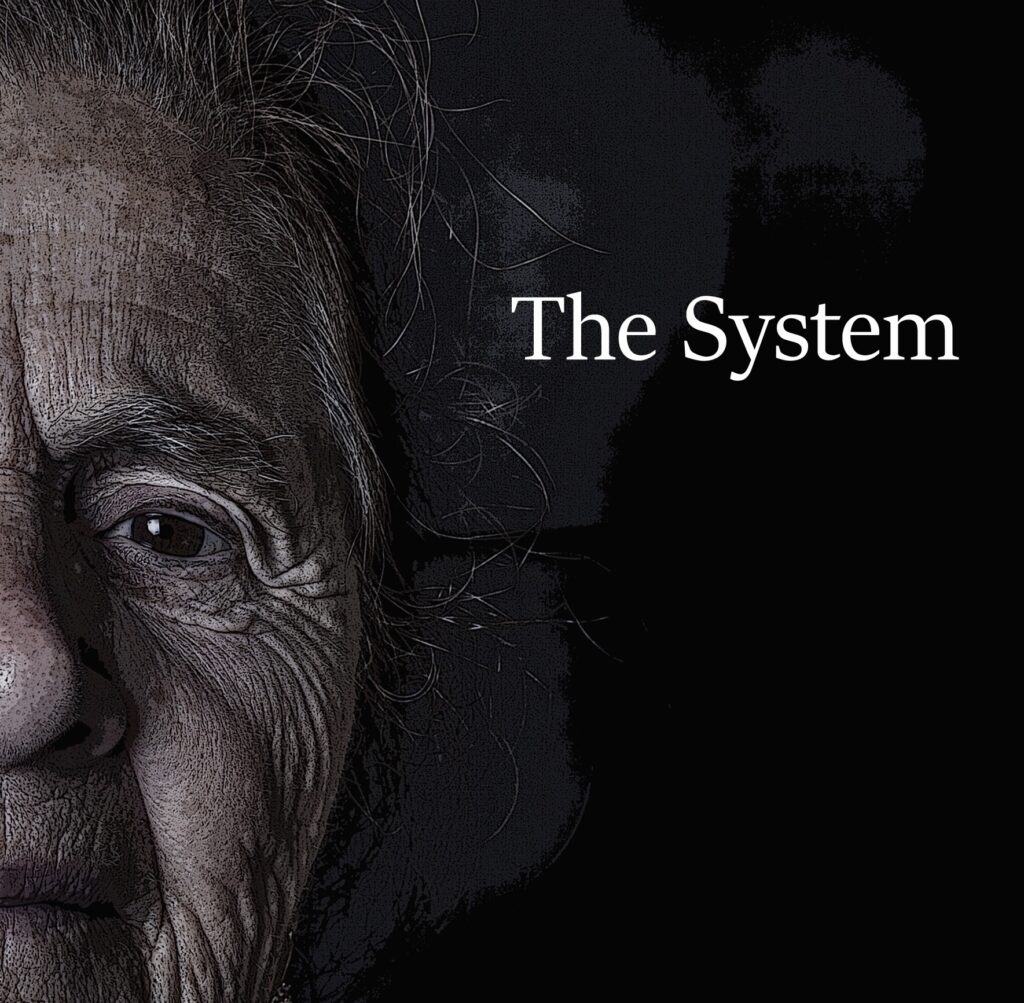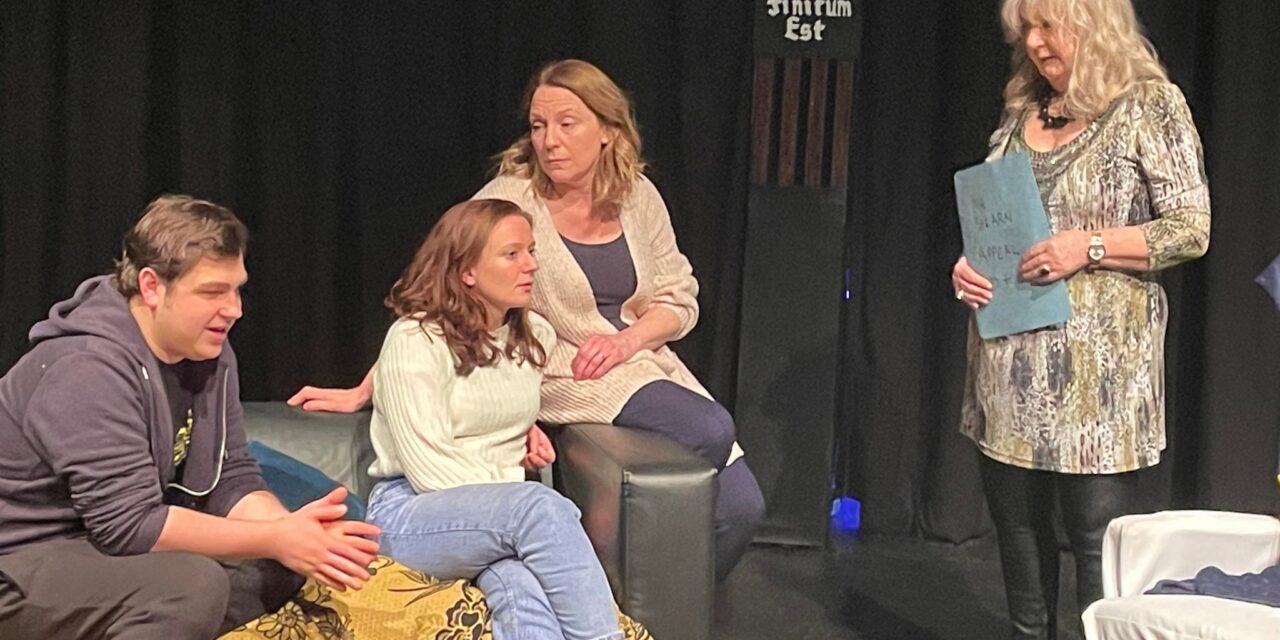
23 – 25 February
A dystopian bureaucracy promoting scheduled euthanasia is nothing new. Those over fifty may remember the 1970s sci-fi romp Logan’s Run, where futuristic hedonism was curtailed at just thirty. ‘THE SYSTEM’ took this essence of an age-limited life span, albeit with a more biblical three-score-years-and-ten, and enforced it through a bureaucracy that was itself archaic, with A4 paper files in manila folders being submitted for final endorsement in a cabinet mockingly inscribed ‘tempus infinitum est’.
Much of the first half was scene setting. The emphasis was on the normality of the characters’ lives, with a middle-aged middle-class middle-ranking civil service couple, Maisie and Danny, with their 20-year-old-ish daughter Blair, and the family dependent upon the stroke of their pens, orphan Timmy and his grandmother guardian Iva. The problem is Iva is 70. Her allotted time has expired, and her case is up for appeal.
The play attempts to ask big questions through examining the vacuity of imagined answers. According to those answers, the system run by the Department of Scheduled Euthanasia makes sense. It is necessary. It is for the common good. There is no strain on the NHS, no strain on the social care system, and the financial benefits are being reinvested to improve the lives of us all. Of course, we have had ‘it is necessary’ and ‘for the common good’ excuses for bureaucratic slaughter before, and it was a little strange that, despite Timmy being a history graduate, no mention was made of any echo of the dark past of humanity, from Nazi Germany to Mao’s China to Pol-Pot’s Cambodia.
In many respects the concept offered much more than the script delivered. Nonetheless, it was a script well carried by a cast who were up-close-and-personal with an audience of less than twenty in the small studio at the Crescent Theatre. Production costs were minimal, of fringe theatre scale. The cast doubled as stagehands in dimmed lighting while off stage voiceovers expanded the small domestic scenes to a national scenario of public information broadcasts, corporate messages and speeches in Westminster. This was rather a clever way of facilitating scene transmission at virtually zero cost while progressing the narrative.
Valuing our older generation’s contribution, the best performances in this play came from Ellie Darvill as Iva and Dawn Butler as Maisie, while Morgan Rees-Davies added some light humorous quality as Danny. While less polished, Beth Wilcox and Liam Alexandru as Blair and Timmy successfully increased the dramatic tension before the interval.
Writer and director Edward Loboda has created a play that took quite a while to warm up but did deliver some dramatic punch toward the end. It drew attention to how much our lives are shaped and determined by bureaucrats who, believing or convincing themselves that they are doing the right thing, fail to question themselves in full conscience. It warns of the dangers of acquiescing to them or allowing them to yield power over life and death. It certainly deserved a far bigger audience.
★★★☆☆ Robert Gainer 25 February 2023
photographer @ Edward Loboda


